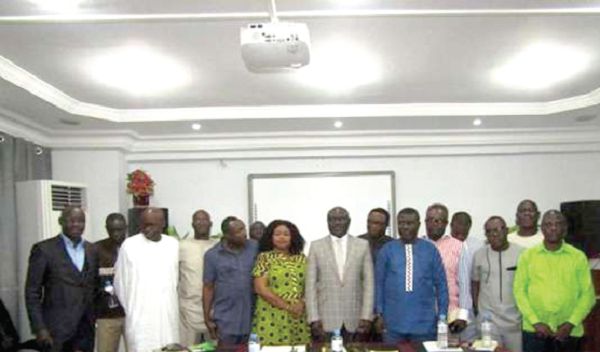
External voting enhances legitimacy of regimes — Senegal’s Director of Elections
The Director General of Elections, Senegal, Mr Tanor Thieuolella Siely Fall, has said external voting has enhanced the legitimacy of the country’s regime and its democratic image, and symbolically integrates key economic groups into its public affairs.
“While it tends to reinforce support for the largest parties, its overall political impact so far has been limited. The cost to the nation even though significant, the overall gains in terms of image are clearly viewed as worth the cost,” Mr Fall stated during an interaction with a Ghanaian delegation in Dakar, Senegal.
The Representation of the People Amendment Act (ROPAA) Consultation Committee in fulfilment of its mandate is in Dakar, Senegal, to engage with strategic institutions including the ‘Commission Electorale Nationale Autonome’ (CENA); ‘Ministere de L’Interieur’; the Ghanaian Community and other strategic institutions to solicit their views towards the implementation of the law in Ghana.
In Senegal, it is the mandate of the Ministry of the Interior to conduct elections while the CENA (that is the Elections Management Body) supervises the whole process to give legitimacy to the elections.
Senegal had since 1993 implemented external voting, Mr Fall, whose office falls directly under the Senegalese Ministere de L’Interieur,which conducts elections in the country, said the country placed significant importance on external voting.
Pilot ROPAA
He advised Ghana to pilot ROPAA from neighbouring countries first and then gradually extend it to other countries.
Senegal currently undertakes external voting in 53 countries with a threshold of 200 Senegalese registered voters as the basis for siting a polling station in an oversea country.
Smaller parties
Senegalese electoral documents available to the Ghana News Agency indicate that some of the smaller parties lacked the financial resources and local personnel to mount campaigns in so many countries and, therefore, concentrated instead on those closer to home, such as Mali and The Gambia.
In the presidential election of 2000, the total national vote gave the incumbent President, Abdou Diouf, 41.3 per cent of the vote while external voters offered 48 per cent support for Diouf in the first round.
In the second round of the election, the advantage of the incumbent overseas was again demonstrated.
Whereas Diouf received only 41.5 per cent of the second-round votes nationally, his overseas share rose to 55.5 per cent.
Since external voters account for between four and five per cent of the total vote in Senegalese elections, they can clearly have a significant influence on a close presidential election in either or both rounds.
Representatives
Mr John Boadu, General Secretary of the New Patriotic Party representing the ruling party; Mr Elvis Afriyie Ankrah, Director of Elections, the National Democratic Congress representing the biggest opposition party; and Mr Kofi Akpaloo, Founder and Leader of the Liberal Party of Ghana representing the other minority parties without representation in Parliament, shared non-partisan position with the Senegalese group.
There are over 4,000 Ghanaians leaving in Senegal, mainly in Dakar and the Casamance Region,(the area of Senegal south of the Gambia including the Casamance River. It consists of the Lower Casamance (Basse Casamance, Baixa Casamança—i.e. Ziguinchor Region) and the Upper Casamance.
The eight-member EC ROPAA Committee team is led by Dr Bossman Eric Asare, EC Deputy Chairman, in-charge of Corporate Services; Mr Samuel Tettey, Deputy Chairman in Charge of Operations; and Professor Ransford Gyampo of the University of Ghana.
Others are: Mr Boadu, Mr Afriyie Ankrah, Mr Akpaloo, Mr Christian Owusu-Parry, EC Director of Administration, who doubles as ROPAA Committee Secretary and Mrs Sylvia Annor, EC Head of Protocol and Acting Head of the Public Affairs Department are in Dakar, Senegal, for the consultation.
However, other committee members including: the Reverend Dr Ernest Adu Gyamfi of the National Peace Council; Dr Kojo Asante of the Centre for Democratic Development (CDD) Ghana; and Mrs Adwoa Abrefa Asuama, who is a Member of the EC could not attend the Dakar ROPAA Consultation.